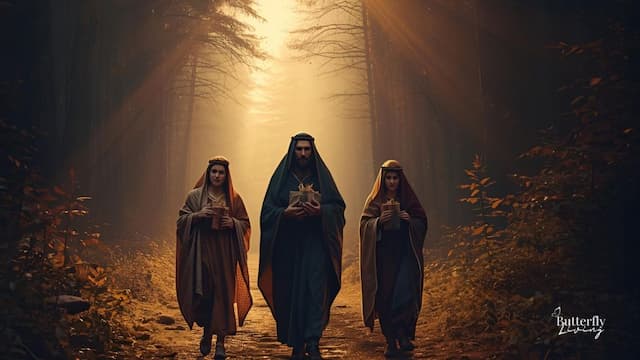Your kingdom identifies you (Exodus 2:15-25)

Open Exodus 2:15-25.
Who is Moses? A Hebrew by birth? An Egyptian by nationality? He tried to take a stand with the Hebrews against the injustice of Egypt, but it didn’t work. Now he’s a nobody. Far from the Hebrews and Egyptians. In no man’s land.
Even in the wilderness, injustice reigns. Seven Midianite sisters try to water their father’s flock, only to have male shepherds push in. It’s just like God said: women face gender conflict in a world where rebellion rules (see on Genesis 3:16).
Moses stands up for them, so they return home early with their sheep. Their father’s surprise indicates that this sexist injustice was their daily experience (2:18). Is it only Moses who cares about gender inequality? Or does every form of injustice need to be set right for the kingdom of God to operate as our heavenly ruler intends?
The Midianite girls identify their rescuer as “an Egyptian” (2:19). The narrator knows how shocking this is for his hearers. Perhaps that’s the point. Moses has grown up in Pharaoh’s household. He has learned to resolve injustice through force (“striking”), He does look like an Egyptian in this chapter.
It gets worse. Moses marries into the Midianite tribe and becomes one of them. The Midianites were descendants of Abraham (Genesis 25:1-4), but they were idol-worshippers. A Jewish audience would be shocked to hear of Moses marrying a Midianite priest’s daughter!
When one of the Israelites brought a Midianite woman into his family, Moses’ great-nephew found it necessary to drive a spear through the couple in order to deal with this wickedness (Numbers 25:6-8). Moses is not behaving like an Israelite at all, but like a foreigner.
He is doubly a foreigner — estranged from Israel (his ethnicity), and estranged from Egypt (his home for 40 years). No wonder he calls his son Gershom, for he feels like a ger — a stranger who belongs nowhere (2:22).
Does that story sound familiar? Abraham left his family, living as stranger in a land he never owned (Genesis 23:4). Jacob spent fourteen years living in exile. Joseph was sold to Midianites, and spent the rest of his life in Egypt. Now all the sons of Israel are being treated as foreigners in Egypt. Moses does not even have a place among them anymore. Can you relate to his yearning for a place to belong? Do you know what it is like to feel there is no place where you fit in? The big narrative of Scripture is that God is working on this very issue — creating a community where all his children feel at home with their heavenly Father.
It may not happen as quickly as you would like, but rest assured that the heavenly ruler is very aware of his people and the struggle they endure. In his own struggle and estrangement, Moses is being prepared to understand the struggle and estrangement of God’s own people.
The heavenly ruler does care about his struggling people. He hears their groaning. He remembers the commitment he gave to Abraham, Isaac, and Jacob. God sees. God knows. “God saw the people of Israel—and God knew” (2:25).
So how does injustice ever get resolved?
The true sovereign is radically different from human rulers. Pharaoh’s reign is limited in space, time, and knowledge, while God’s reign has no such bounds:
- At Babel we saw that God does not permit human rulers to have global reach. Moses escaped Pharaoh’s reach by moving beyond the borders of Egypt. The Abrahamic family are also beyond the borders of the land God had promised to Abraham, yet they are never outside his reach.
- Human rulers are mortal: they always come to an end as Pharaoh does in 2:23. God’s reign endures forever. This contrast is celebrated throughout Scripture, e.g.
Psalm 146 3 Put not your trust in princes, in a son of man, in whom there is no salvation. 4 When his breath departs, he returns to the earth; on that very day his plans perish. - Pharaoh has limited knowledge. He did not know who Moses would be in the future. He does not remember Joseph and the promises of the past. By contrast, the true ruler recalls the generations before Joseph: “God remembered his covenant with Abraham, with Isaac, and with Jacob. God saw … and God knew” (2:24-25). Our heavenly ruler is preparing for the future he planned long ago.
Back at 1:15-18, we commented on how using the phrase king of Egypt rather than Pharaoh subtly focused on the geographic limit of his authority. Now we see that limit blended with his temporal limitation: “the king of Egypt died” (2:23).
God’s kingship alone survives. We are his people. In the end, that’s the only identity that matters, the only identity that endures.
Seeking to understand Jesus in the terms he chose to describe himself: son of man (his identity), and kingdom of God (his mission). Riverview College Dean
View all posts by Allen Browne






